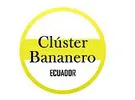At the XVIII International Banana Convention October 27-29 2021 in Guayaquil, representatives of the banana sector from Ecuador, Colombia, Guatemala, Honduras, Dominican Republic and Costa Rica have called for a regional meeting to ratify their position against aggressions and damages to which the Latin American banana producing and exporting sector is being subjected and the lack of fair compensation and shared responsibility on the part of supermarkets of the European Union, United States and United Kingdom.
Negotiations began this October with supermarket chains buying bananas to sell on shelves in 2022. These negotiations take place in a global context of spiraling inflationary prices that affect production costs but are not reflected in the purchase price. All the supplies needed to ensure that bananas reaching the shelves of European and North American consumers have become more expensive.
However, the supermarkets, led by the German supermarket ALDI, are unwilling to compensate for this increase in costs which seriously harms banana producers and exporters who are forced to bear the full cost increase. With the excuse of offering the "cheapest bananas on the market", the German giant is setting the price by which the rest of the supermarkets will be guided and none of them will be willing to pay more.
Latin American banana farmers receive derisory offers per box of bananas, which have not risen in price for more than two decades unlike other fruits, because supermarkets like ALDI take advantage of the intrinsic nature of the sector. A sector of small and medium-sized producers, of family economies and of crucial importance for rural communities in Latin American countries that accept the harsh conditions because they cannot negotiate. This type of business, which has been adapting to changing and increasingly demanding environmental legislation for years, now sees its efforts undervalued.
Therefore, the Latin American banana export sector calls for shared responsibility between all actors in the supply chain —from the producer to the final consumer via supermarkets and other intermediaries— which becomes a first and efficient mechanism to ensure the sustainability of the global banana industry.
The main buyers of bananas worldwide are supermarkets in the European Union, the United Kingdom and the United States and consumers in these countries consume more bananas than any other fruit, despite the fact that they are produced outside their territories. For producers, the fact that ALDI still wants to offer cheap bananas to European consumers is unsustainable in the short term. It is not possible to offer a product with high quality standards at a price that has not changed in two decades with rising production costs.
Shared responsibility seeks to find solutions to this problem and for all actors to contribute to the survival of the sector, since sacrifices cannot come from one party alone.
 For more information:
For more information:
Juan José Pons
Ecuadorian Banana Cluster
Coordinador@clusterbananerodelecuador.org
